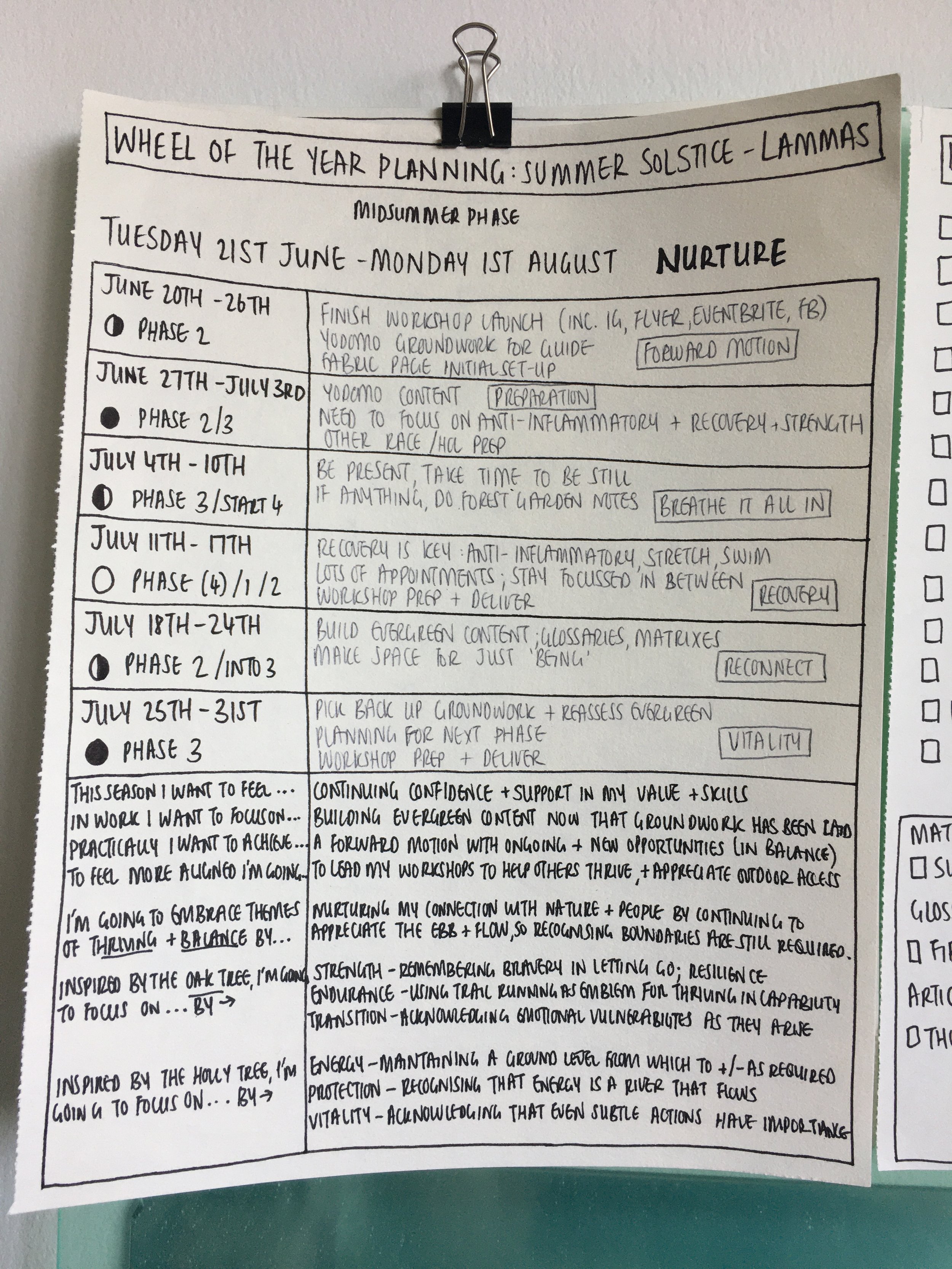Nature-Led Business.
On May Day - May 1st - (otherwise Workers’ Day or Beltane in Celtic folklore) I joined a nature-led business mentoring programme called The Wild Work Collective, as part of The Wild Academy. I’m in the second phase of this accountability endeavour, and thought it could be useful to share some of what I am learning when it comes to identifying and acting on being a ‘nature-led business’.
Working in alignment with the cycles and rhythms of nature, a nature-led business provides an alternative framing of leadership, questions what success looks like, and draws you down into the roots of the subconscious circadian interactions we have each day.
Upon being kicked out of a business I’d been supporting for 3.5 years, essentially for continuing to question why I was doing the work of my colleagues and working overtime to do it, without being valued or respected emotionally and financially, I then had to decide whether I wanted to take the opportunity to set off on my own.
I had been toying with the idea of an enterprise for years, mostly when I was still creating clothing. And struggled with what the value would be in setting up yet another business anyway when there were already so many doing similar things.
What I realised this year is that I do have a unique perspective and that there is value is sharing it on my own turf and on my own terms. No matter how many businesses I work for that claim ethical and transparent operations, they’re really just greenwashing.
And on April 30th, Folk + Field Community newsletter came into my mailbox. I didn’t have the funds, or indeed the warranted need to join this monthly and seasonal resource, however, the opportunity to join a community specifically aimed at connecting with nature in your business did speak out to me. So I registered for The Wild Work Collective and figured the accountability alone would be worth the £25 a month cost, even when on Universal Credit.
Centuries ago, in Ireland, ‘hedge schools’ were created as safe havens for the kinds of teaching that went against the grain. Communities would gather in hidden places - sometimes outdoors, hence the name - to offer education rooted in local culture and a range of spiritual traditions, rather than conforming to the singular requirements and beliefs of dominant institutions. The Wild Academy is founded on the same idea: it’s a platform for untamed learning that seeks to challenge established ways of thinking and being. Based on a fierce but tender conviction that the world makes a lot more sense when we bring nature back into the heart of our lives and work, our courses, communities and experiences offer transformative opportunities to explore what it means to unearth the wild within. ~ Folk + Field
Led by coach Maddy Lawson and writer Eleanor Cheetham, the pair provide sessions rooted in Celtic folklore and nature metaphors, helping to facilitate the nurturing of spiritual thoughts that usually don’t have a place in work.
Images: There are many ways to connect with nature, from growing your own, to foraging, to paying attention to the seasons, to being subtly injured by gooseberries.
Potentially guided by becoming a land-based worker and spending a lot of my days speaking with plants and insects, or possibly simply the deep-rooted fascination with where things come from (so saying “hi” to the moon each evening), I have become more attuned to my own cycles, and how they sit within our planetary cycles. With putting a lot of effort into developing running strength, and feeling disheartened by unknown health conditions, I started to monitor and record “symptoms” of menstruation so that I would be better able to plan. Though, it has only been since mapping the Celtic Wheel of the Year, and the lunar and solar cycles, that I have placed my menstrual cycle within the greater whole.
Actually having a reason to make plans, to put cycles into practice, to transform my thinking surrounding work, has meant I relish creating my lists and having them on display to refer to. Rather than feeling beat up when I don’t achieve something, I recognise instead what I have achieved and consider the reasoning why something hadn’t gone to plan - for instance, in the last phase, I noted a lot of YouTube channel planning and building evergreen content, yet I hadn’t made any space for incoming job opportunities. This was in fact an oversight as I had to appease Universal Credit - but it’s difficult to plan for what you don’t know. For the current phase I have some experience with planning and am more aware of my limitations.
In view of being a transparent business, the above is my seasonal planning, Big Picture Checklist for the groundwork of my business and professional development (for 2022 at least), and a look at how I prompt journal notes on menstruation and affects of the sun and moon’s energy, along with weather and external factors.
Note, I intermittently use the app FitrWoman to monitor my menstrual cycle, but find it misses out a lot of symptoms, so instead I started journalling with a view to documenting symptoms and period dates on a paper calendar. I tried to use a Google Spreadsheet but feel notebooks offer me a more effective reminder. So I still need to analyse journal notes and mark on my calendar - this was to give evidence to my GP.







